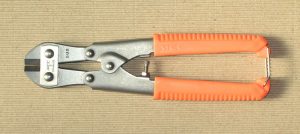 Crimes or accusations of inference and supposition ought to be relatively easy to defend because of the lack of clarity surrounding them. However, the reality is that the legislation has been written in such a way as to favor the prosecutor and the accusing officer. The basic tenets of the law under the provisions of statutory instrument number 720 ILCS 5/19-1 are that if you are caught with paraphernalia that could be used to commit a crime; then the authorities are well within their rights to accuse you of the intention to commit that crime.
Crimes or accusations of inference and supposition ought to be relatively easy to defend because of the lack of clarity surrounding them. However, the reality is that the legislation has been written in such a way as to favor the prosecutor and the accusing officer. The basic tenets of the law under the provisions of statutory instrument number 720 ILCS 5/19-1 are that if you are caught with paraphernalia that could be used to commit a crime; then the authorities are well within their rights to accuse you of the intention to commit that crime.
That is not always the case in all crimes, but in the case of burglary the principle more or less operates as described above. That then leads the defense counsel to determine what exactly constitutes crime-related paraphernalia. In this, as in many other things, the law is still lacking in clarity. For example, something like a bolt cutter could be used for legitimate carpentry operations as part of a professional undertaking. At the same time, it remains one of the most common tools that home burglars use in order to gain access.
Developing the Rules Through Experience
A lot of literature is devoted to educating law enforcement officers about the intricate rules that underpin this law. A case in point are the practice notes that are currently in use. However, these notes are not prescriptive. The circumstances of the situation as well as the perspectives of the arresting officers will play an important role in determining whether a charge can be brought or otherwise. The behavior of the defendant as well as their ability to retain high grade legal counsel will be of critical importance when the case comes before a court. The consequences of a conviction are certainly serious enough, with the possibility of being incarcerated for a term of three years.
Typically, the defense strategy will focus on defining the situation in such a way that it does not meet the minimum requirements for a crime under the statute. One of the very important considerations will be whether the person was in the process of entering a property, vehicle or any other premises. That adds to the general suspicion that their intention was to engage in burglary. Of course, if the entry is authorized by the owner or controller, then the prosecutor will have a much harder time proving the case. That is not to say that entry is required before they can be charged with plain burglary or even burglary tool possession in Chicago.
The Sentencing Guidelines
As was demonstrated in People v Taylor, burglary tool possession can be a serious crime in Chicago, attracting a Class 4 felony status by default. In addition to the sentencing guidelines, the courts have gradually developed a laundry list of issues that will decide the matter either way. For example, the inference of intent can be contested on the grounds that the possession of the tools was reasonable, legitimate, and appropriate. The case that comes to mind is that of the locksmith that is caught up in overzealous law enforcement.
This is a cautionary tale for tradespeople because the law is also able to capture those who knowingly sell or transfer burglary tools. It is a conduit to being an accessory to the crime. Interestingly, the accessory is treated as a Class 4 felony upon conviction which means that the facilitator and perpetrator are seen as one and the same under the law. The crime of burglary tool possession in Chicago is often a precursor to the substantive burglary charge, which almost certainly ensures that a convict is given a term of custody rather than probation. Call David Freidberg Attorney at Law now at 312-560-7100 to get the legal help you deserve.
 Chicago Criminal Lawyer Blog
Chicago Criminal Lawyer Blog


